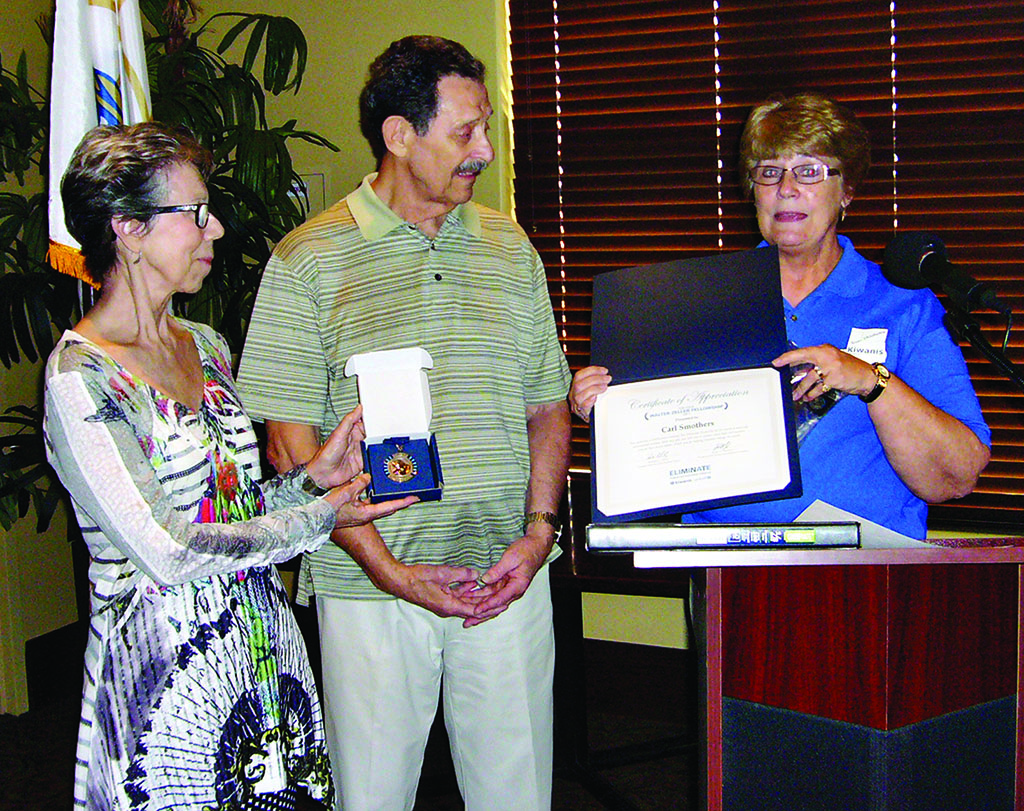Vicki Baker
All the symptoms are present. The diagnosis is firm. The condition is incurable. It became perfectly clear at the September 4 Kiwanis Club meeting: Ranch resident and author Carl Smothers has “writer-itis,” the writing bug. It starts simply enough. A short story here, a poem there, but over time you feel the need for more; you can’t get enough. It wakes you up at night. It makes you stop whatever you’re doing to jot down a thought. The disease takes hold like an addiction.
At the age of 11, Carl caught the “bug” and began his first book. But it was never completed. Putting the unfinished story aside, Carl went on to obtain his education and establish his professional career in high technology research and development involving computer design, air defense systems, passive tactical and strategic sonar systems for the detection of Russian submarines, marine geophysical exploration systems, night vision equipment and fire control systems. With degrees in mathematics, physics, electrical engineering and business, it’s no wonder he never had time to just sit back and resume writing.
Then 50 years later and after retirement, Carl resurrected his childhood novel. But the manuscript sounded like a dry and fact-focused technical journal. He was at a loss; tear it up or try again. Joining Herald’s Writing League, he presented his book and received absolutely no response. The readers were either so overwhelmed or utterly unimpressed, most likely the later he assumed. He was on the brink of giving up, then realized he needed passion, practice and study. After college degrees, a stable career and starting a family, it wasn’t too late to start writing. That first novel was eventually published and then followed by three others.
Ray Bradbury said he wasn’t born with natural talent in writing; he was born with a passion for writing itself. His enthusiasm was the fuel that forced him to develop his skill as a writer. The same applied to Carl. Once he settled down at his computer and his fingers hit the keys, his creative energy revved up, and he didn’t seem to care that the sun had gone down and the family had gone to bed. Writing was the air he breathed and what made his heart continue beating. To Carl, writing was a way of life.
What advice does Carl offer to budding authors? Take a creative writing class, read books on “how to write,” read other people’s books, sit down and write getting your head into your work, seek critiques, both good and bad, and don’t follow all the writing “rules;” write from your heart and head.
William Carlos Williams phrased it best, “I think all writing is a disease. You can’t stop it.” And this is a disease Carl seeks no cure for. He followed his calling and discovered that results may not come instantly, but all was well when he followed his heart.

